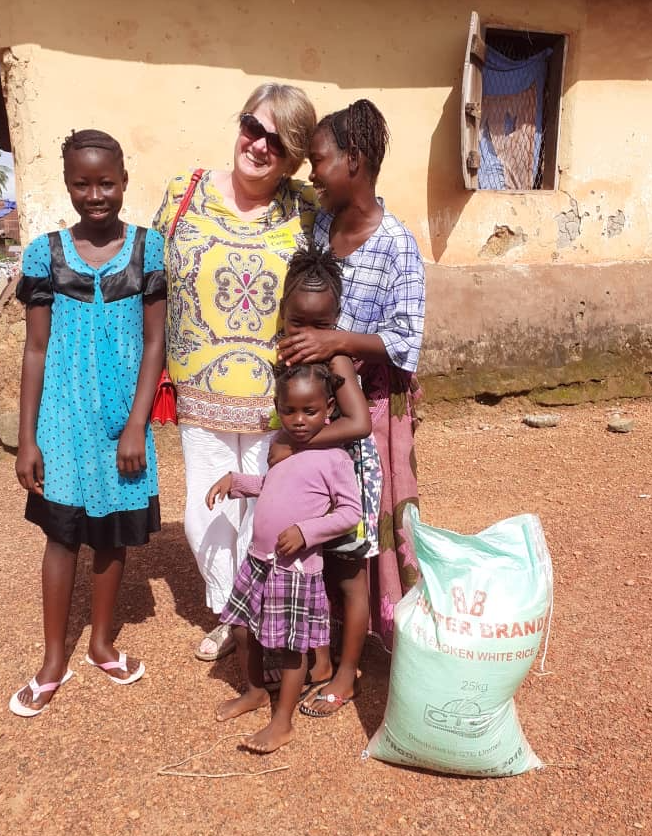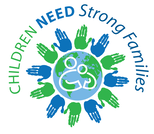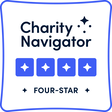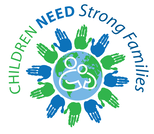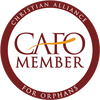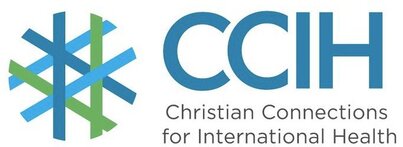|
I have long advocated for HCW to switch our dedicated donor support model for the child welfare program, so it may come as a surprise that my family proudly sponsored two children in the original Sponsor-a-child (SAC) program. This was a lesson in charity and relationship I wanted to share with my grandchildren. I made the original sponsorship a gift to all of them collectively, and picked a child with a birthday that was the same as one of the youngest, so that they could relate her experiences to theirs. I eagerly waited for letters from Aminata, and distributed them to the family. I prepared for my first visit, with excitement, and the family was excited as well. They grandkids recorded a video to greet her that I was instructed to share with her when I met her. After checking with the SAC team that it was within the rules to do so, I gathered up the approved gifts and prepared for the visit. However, I knew this was going to be a slightly different experience than past sponsors, in keeping with the progress CRC was making in changing its model of care. One of the first changes from the past routine was that the meeting was to take place at the sponsored child's home, where we would meet not only the child, but her mother, her sister and pretty much everybody in her neighborhood who came out to greet the strange Americans in their midst.
I had been nervous, thinking that I might be seen as a nosy invader. They were incredibly welcoming, and went to fetch chairs from several porches, so that we might sit down. Most did not speak much English, but the CRC staff translated our conversation, and their cordial expressions did the rest. The visit was supervised by the CRC SAC team visitation coordinator, essentially the family’s case manager, and several members of the mission trip team were invited along to see for themselves the experience of the children we supported outside of the residence. I enjoyed meeting Aminata, but I was delighted to meet her mother, her big sister, and her community. I was interested in seeing how HCW and CRC could join in supporting a model of care that helped children remain reintegrated, and focused on all the children who would now be living in homes. I realized that some changes would have to come on our side as well, as we began to make that change, but I was hopeful that it would bring us closer to the mission objectives in a more empowering, sustainable and enriching partnership between families, communities and supporters. As HCW focused on addressing the underlying causes of child poverty and child mortality, we saw more opportunities to align our donor practices with methodologies of practice being adopted by the CRC as it transformed into a professional, skilled social work agency under its new vision of transformation. That was what was happening at work. At home, I was just being hopeful that Aminata’s family was being supported in ways that strengthened and empowered them, that her older sister was finally able to go to school, that her mother’s work was not exhausting, that her aunt and niece, who I met in subsequent trips, were well and hopeful for their futures. The letters we received were typical SAC letters, “I’m doing well in school. I passed to the next grade. Thank you for the Christmas present. Thank you for being my sponsor. I hope you are well. I am grateful.” Some of it was the age of the child, but most of it was because our connection was tenuous. Her handwriting improved over the years, but the topic of the letters was the same. I really looked forward to visits, though, because I wanted to look into her mother’s eyes again and see that she was more than just grateful that a sponsor cared about her child’s progress in school. I wanted to see that look in her eyes that shared look that meant she knew that I knew that my small financial contribution had little to do with her child’s success, understood that we were in partnership with each other and the CRC. I know I am a stranger to Aminata. She knows my name, knows I am “her” sponsor. Although I hope she knows I am not the one making decisions on the support she is getting, I hope she understands that is her case manager at the CRC. I know that when her mother greets me, it is genuine. She knows my name, but until recently, I didn’t know hers, because the SAC program was single-child focused, school success focused, and her environment, her family, her experience outside of sponsorship was not relevant. While I was part of the planning team to transform and support the process of change at the CRC, that is a work thing. And while I personally sit at the head of the table, making executive decisions along the way about how and when HCW would transform its dedicated donor program to match CRC’s new family empowerment and strengthening model, that was a work thing too. It was a work thing to know that Aminata’s family had been enrolled together into the family empowerment program, like every other child’s family. It was a work thing to know that the CRC was considering her family’s needs, along with hers, in order to ensure that the family would stay strong and intact, and able to care for their children. But, a home thing happened recently. You might think I get my letters differently than other dedicated donors, but I don’t. They arrive in the mail just like yours. I get them at home. I share them with my family at home. One just came. It was different from any other letter we had previously received. This time, I laughed out loud and tears sprang to my eyes as I read Aminata’s letter out loud to the family. It was full of details of her life, her sister’s achievements, her plans for the future, her parents names! (Until that moment, I did not know Aminata’s father existed.) I learned so much about how the work of the CRC is recognizing and celebrating this family's strengths, and coming alongside to address their challenges. I saw the pride this young woman had in her family, their achievements and plans and the recognition that she knew what her mother and I had always known, that her success has most to do with all of that, and little to do with my small contribution. It ended with “thank you for empowering me and my family, thank you for advocating for us.” Wow.
0 Comments
Through HCW’s partnership with 1MILLIONHOME, the CRC has been able to receive regular case management and social work training from Strengthening Families and Children (SFAC), which is based in the UK. SFAC has been providing social work training to practitioners on the ground all over the world, for more than 20 years. CEO and trainer, Dan Hope, has traveled to over 30 countries to train social work and case management teams, and HCW has long hoped to have Dan travel to the CRC to continue to build the capacity of the amazing team there, but COVID put a crimp in those plans. Dan and the CRC team met regularly via Zoom throughout 2021. Finally, in April of 2022, Dan was able to make the trip to Bo - his first to Sierra Leone, with Laura Horvath and Dr. Andrea Siegel to provide a week’s worth of training in person.
Four days of group work, interactive learning, and practical step by step instruction covered the key topics of (1) understanding the continuum of services, (2) using in-depth family needs assessments, (3) risk assessment decision-making, and (4) analytical best interest decision making. This was followed by two days of consultancy session with the CRC Director Olivia Fonnie, Case Supervisor/Child Protection Officer, George Kulanda, and the HCW team on the team’s skills, strengths, resources, capacity, and where the CRC team fits and meets the needs of the community in which it serves. In his report back to the CRC and HCW, Dan shared that “the CRC social workers are a HUGE asset to CRC and HCW. They are highly skilled and impressive in their learning and ability to take concepts and turn them into practice.” Dan also lauded the CRC’s Transition Coaching and Mentoring Department in its role in building “clear links and relationships with other NGOS who have orphanages/children’s homes that [have the potential] to become a powerful network for change in Sierra Leone. He further reflected that “developing and promoting family care in the region will face significant challenges in comparison to other countries due to the widespread structural and systemic issues of poverty, lack of resources, poor infrastructure, lack of electricity and corruption influences. However, the potential for change is significant, and the CRC’s very skilled workforce can provide a stimulus and example for Sierra Leone to develop family care alternatives.” He concluded, “I just want to reiterate that the skills, knowledge and ability of the team at CRC was impressive, as was their work rate in such heat! And I would also say how impressive and heartening to see such family reintegration and respect of different faiths in the work of CRC and HCW in the communities they work in, the projects they do, and in their own staff team.” HCW and CRC are deeply grateful to Dan, the entire SFAC team, and to 1MILLIONHOME for making this training possible. In October 2021, HCW and the CRC held the Rising Tides Family Reunification Workshop in Freetown, bringing together leaders from 50 child welfare agencies across Sierra Leone, as well as a delegation from Nigeria and one from Liberia. For five days, these leaders learned about the importance of children growing up in families, how to trace families, push and pull factors that drive or pull children into institutional care, and how to transition from orphanage to family care models. One of the most important outcomes of this week-long workshop was the creation of a network of organizations that continue to connect via WhatsApp, and through a variety of trainings offered by the CRC’s Transition Coaching and Mentoring Department.
In March of 2022, the CRC Team and HCW’s Emmanuel Mohamed Nabieu, hosted a Rising Tides Reunion luncheon in Freetown, bringing these leaders back together again to enjoy fellowship, reflect on the workshop experience and the key lessons learned, and to share updates on steps these organizations had taken toward shifting their model of care. Participants were encouraged to share honestly about the challenges they face, and to offer advice and support to one another. |
Follow us on social media
Archive
July 2024
Click the button to read heartfelt tributes to a beloved Bishop, co- founder of our mission!
Post
|
Helping Children Worldwide is a 501 (c) 3 nonprofit organization | 703-793-9521 | [email protected]
©2017 - 2021 Helping Children Worldwide
All donations in the United States are tax-deductible in full or part. | Donor and Privacy Policy
©2017 - 2021 Helping Children Worldwide
All donations in the United States are tax-deductible in full or part. | Donor and Privacy Policy

